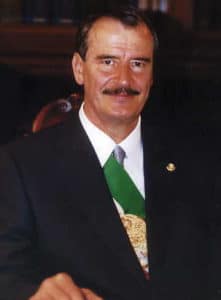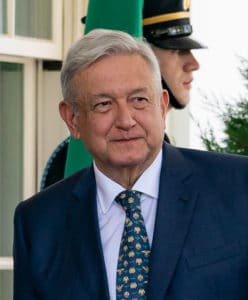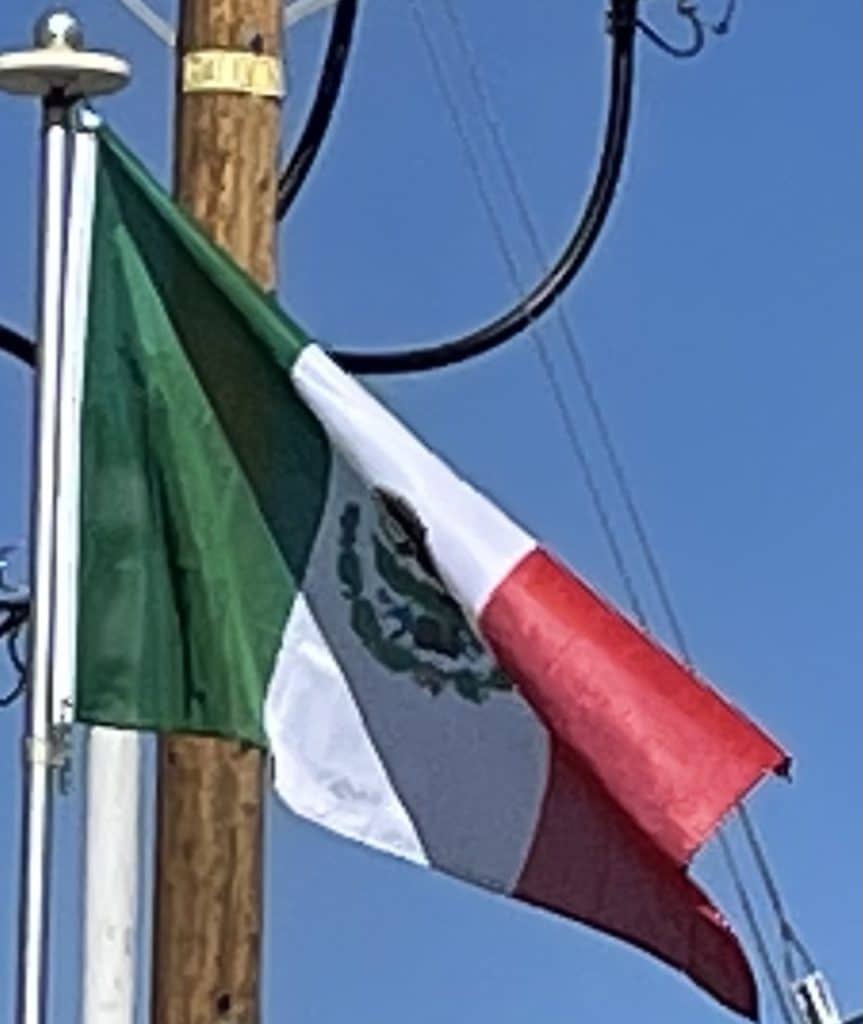
Although Salinas won by fraud, he embarked on a program of neoliberal reforms which fixed the exchange rate of the peso, controlled inflation, opened Mexico to foreign investment, and began talks with the U.S. and Canada to join their free-trade agreement. In order to do that, the Constitution of 1917 was amended in several important ways. Article 27, which allowed the government to expropriate natural resources and distribute land, was amended to end agrarian reform and to guarantee private owners’ property rights. The anti-clerical articles that muzzled religious institutions, especially the Catholic Church, were amended and Mexico reestablished of diplomatic relations with the Holy See, to which the Mexican State did not recognize as a political entity. Signing on to the North American Free Trade Agreement (NAFTA) removed Mexico’s autonomy over trade policy. The agreement came into effect on 1 January 1994; the same day, the Zapatista Army of National Liberation (EZLN) started a two-week-long armed rebellion against the federal government, and has continued as a non-violent opposition movement against neoliberalism and globalization.
In 1994, following the assassination of the PRI’s presidential candidate Luis Donaldo Colosio, Salinas was succeeded by substitute PRI candidate Ernesto Zedillo. Salinas left Zedillo’s government to deal with the Mexican peso crisis, requiring a $50 billion IMF bailout. Major macroeconomic reforms were started by President Zedillo, and the economy rapidly recovered and growth peaked at almost 7% by the end of 1999.
Contemporary Mexico:
In 2000, after 71 years, the PRI lost a presidential election to Vicente Fox of the opposition National Action Party (PAN).

In the 2006 presidential election, Felipe Calderón from the PAN was declared the winner, with a very narrow margin (0.58%) over leftist politician Andrés Manuel López Obrador then the candidate of the Party of the Democratic Revolution (PRD). López Obrador, however, contested the election and pledged to create an “alternative government”.
After twelve years, in 2012, the PRI won the presidency again with the election of Enrique Peña Nieto, the governor of the State of Mexico from 2005 to 2011. However, he won with a plurality of about 38%, and did not have a legislative majority.
After founding the new political party MORENA, Andrés Manuel López Obrador won the 2018 presidential election with over 50% of the vote. His political coalition, led by his left-wing party, founded after the 2012 elections includes parties and politicians from all over the political spectrum. The coalition also won a majority in both the upper and lower congress chambers. AMLO’s (one of his many nicknames) success is attributed to the country’s other strong political alternatives exhausting their chances as well as the politician adopting a moderate discourse with focus in conciliation.

Mexico has contended with high crime rates, official corruption, narcotrafficking, and a stagnant economy. Many state-owned industrial enterprises were privatized starting in the 1990s, with neoliberal reforms, but Pemex, the state-owned petroleum company is only slowly being privatized, with exploration licenses being issued. In AMLO’s push against government corruption, the ex-CEO of Pemex has been arrested.
